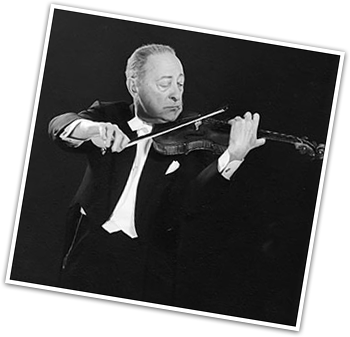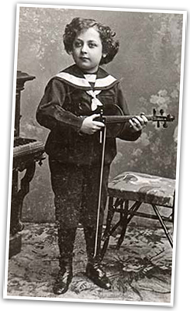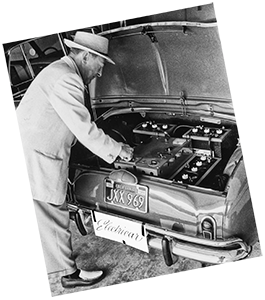Quotations
Throughout his career, Jascha Heifetz was known for many wise, amusing, and occasionally perplexing statements that were reported in the press, or shared with family members, audiences, and students.
Here are some of the most memorable ones.
Guide a youngster’s fingers over a piano keyboard, and let him pick out Yankee Doodle. From that moment onward, he will have a heightened appreciation of music.
We continue learning every day of our life. But for some of us, too much formal education can result in getting nowhere by degrees.
There’s not a living human being who doesn’t need luck. You need luck every time you give a concert. You worry about weather and transportation. Trains and planes are sometimes late; taxis have been known to break down. Then, at the hall, you worry that a string might snap or the lights fail, or that a page-turner might flip over two pages at once.
You can “just listen” to the Brahms violin concerto and enjoy it keenly. But if you read about Brahms’ life, you appreciate it more. And, if you’ve listened to recordings of it, you will appreciate it ten times as much.
You always hear of the “delicate, sensitive artist.” I assure you that it takes the nerves of a bullfighter, the digestion of a peasant, the vitality of a nightclub hostess, the tact of a diplomat, and the concentration of a Tibetan monk to lead the strenuous life of a virtuoso. The great compensation, of course, is the human one. In the course of giving concerts, I have been around the world many times. I know literally thousands of people in all parts of the globe. I don’t suppose there’s a place in the world where I haven’t friends. If that’s not a reward for service, what is?
Criticism does not disturb me, for I am my own severest critic. Always in my playing I strive to surpass myself, and it is this constant struggle that makes music fascinating to me.
Music has a lot in common with mathematics. But in music, two and two need not make four: they add up to whatever you wish.
We do not need to be educated musically. We simply need to guard against musical miseducation. Our own ears, unless they have grown so used to mediocrity that they have lost their keenness, will do the rest of the job for us.
Stopped on the streets of Manhattan and asked how to get to Carnegie Hall, Heifetz is reported to have replied: “Practice, practice, practice.”
Can you appreciate music without playing it? Of course you can, in the same way that people who are not athletes get enjoyment from attending a game to enjoy the crowd, the excitement, and the experience.







